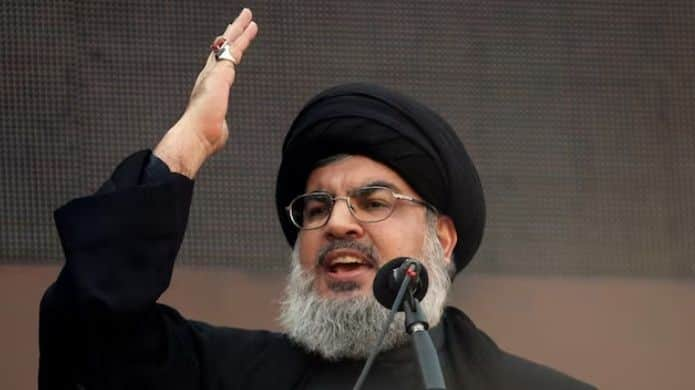
100 newborns named 'Nasrallah' in Iraq after Hezbollah chief's killing
What's the story
After the death of Hezbollah leader Hassan Nasrallah in an Israeli airstrike, Iraq has seen a spike in newborns named after him.
The country's health ministry revealed that around 100 babies across Iraq have been registered with the name "Nasrallah."
Nasrallah, who led Hezbollah for over three decades, was widely seen as a symbol of resistance against Israeli and Western influence in many Arab nations.
Public outcry
Nasrallah's assassination triggers widespread protests in Iraq
The assassination of Hezbollah leader Imad Mughniyeh's son, Jihad Nasrallah, has ignited a wave of anger in Iraq, resulting in massive protests in Baghdad and other cities.
Demonstrators have denounced Israel's actions, calling the killing a violation of international law.
Iraqi Prime Minister Mohammed Shia al-Sudani paid tribute to Nasrallah, calling him "a martyr on the path of the righteous."
A three-day state mourning was observed across the country, with vigils held to honor the late Hezbollah leader.
Historical connection
Nasrallah's deep-rooted ties with Iraq and rise to prominence
Nasrallah's ties to Iraq run deep, both in terms of faith and politics.
He studied Islam at a Shia seminary in Najaf, Iraq, where he also became a member of the Dawa party.
After joining Hezbollah in 1982, he gained prominence during Israel's invasion of Lebanon.
He took over as Hezbollah's leader in 1992 after his predecessor, Abbas Musawi, was assassinated, and has since turned it into a regional powerhouse over the last three decades.
Leadership impact
Hezbollah's power expansion and controversies under Nasrallah
Under Nasrallah's leadership, Hezbollah grew its power both on the battlefield and in politics.
The group handed out missiles and rockets to allies like Hamas and militias in Iraq and Yemen, all part of a bigger 'Axis of Resistance' against Israel.
But his leadership wasn't without its controversies, with many accusing him of making Lebanon's sectarian divides even deeper.
Plus, Hezbollah's suspected role in the 2005 assassination of then-Lebanese Prime Minister Rafiq al-Hariri only added to Lebanon's polarization.
Diverse responses
Mixed reactions to Nasrallah's death in Arab nations
While Iran and its allies in Iraq and Syria have condemned Nasrallah's killing, other Arab nations led by Saudi Arabia have stayed distant.
This divide reflects the historical sectarian conflict between Sunni and Shia Muslims.
Israel's decision to target Nasrallah seems aimed at disrupting Iran's influence in the region.
However, the immediate outpouring of support for Nasrallah suggests that his legacy of resistance may continue beyond his death.